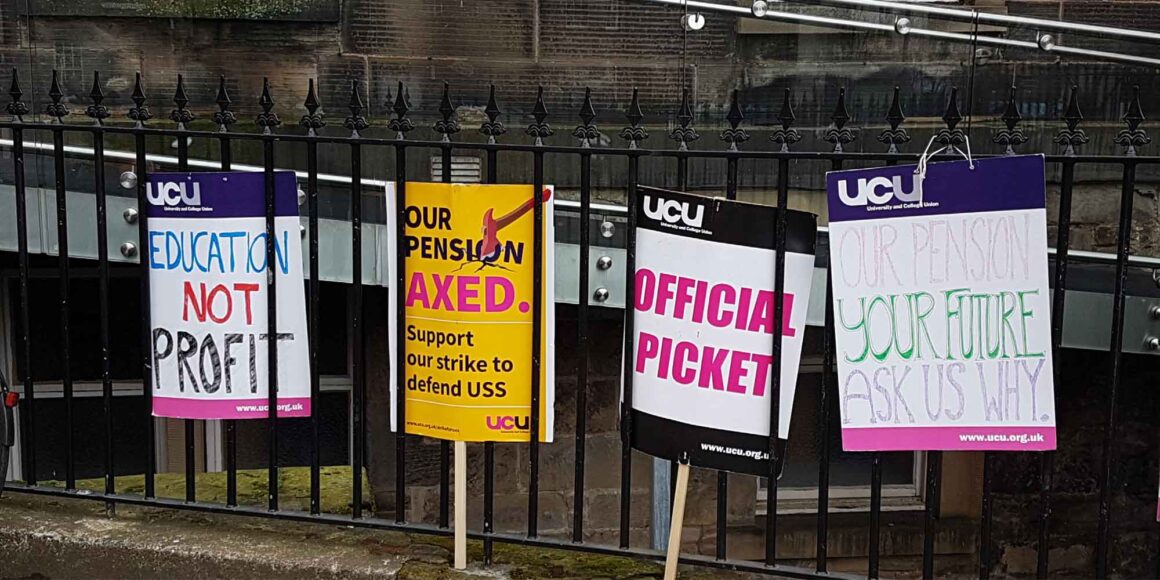

HIGHER EDUCATION workers have been on strike for months against employers’ proposals that would mean a 15% real-terms pay cut for 2022–24 and a big reduction in the value of the USS pension scheme.
A big vote for action in the UCU union and large turnouts on demonstrations and pickets at the beginning of the strike gave the union leadership a strong hand.
But General Secretary Jo Grady and her officials did not share the members’ desire for a determined struggle against widespread casualisation and profiteering that is blighting conditions for both workers and students. Determined to bring the strikes to an end they have repeatedly undermined the industrial campaign.
At a branch delegates meeting (BDM) in mid-March, in a vote weighted by the size of branches, 70% of delegates voted in favour of maintaining the action, with only 16% against.
At the same time, the general secretary ran an ‘informal survey’ asking members whether they wanted to be consulted. This plebiscite, which was run contrary to explicit union policy governing the use of e-ballots and polls, was a deliberate attempt to browbeat the Higher Education Committee (HEC) into calling off strikes.
The HEC was right to reject this.
Now a statement issued by the University and Colleges Employers Association (UCEA) declares that ‘UCEA has no ability to improve on the 2023–24 pay award’ but that on other matters they are ‘ready to begin talks on the understanding that no further industrial action is called during these talks.’
This means a commitment to no strikes or action short of a strike (e.g. marking and assessment boycotts) for the next 12 months in return for a major pay cut and no commitments on the employers’ side about ending precarious contracts or closing the gender, race and disability pay gaps.
The UCU, Unison, Unite, GMB and EIS responded with a joint statement saying the ‘unions will not give up their right to run ballots for a period of 12 months and believe it is unreasonable of UCEA to expect them to do so,’ adding, ‘Whether or not any action goes ahead at any particular time will be subject to a democratic decision at that time.’
This was the only possible response to the bosses’ blackmail.
But now the UCU leadership is waging a dishonest and undemocratic campaign to persuade their members to side with the employers against their own elected representatives in the branch delegate meetings and HEC—and to break ranks with the other unions. They even admit that there is no substantive offer on the table.
Pickets report of the demobilising effect the e-ballots are having on support for the strike. It is no coincidence that this one is being run during the critical last week of the re-ballot. Even the wording on the ‘consultation’ does not make it clear that a ‘Yes’ vote means accepting the bosses’ terms of reference and ending the strikes. If the reballot is successful it will be no thanks to Jo Grady.
UCU members should vote ‘no’ in the consultation and ‘yes’ in the industrial ballot. The upcoming BDM and HEC need to hold firm against the union leaders’ sabotage.
A Special Higher Education Sector conference has been called for 19 April, following motions passed by 20 branches. Several branches have submitted motions correctly calling for no confidence in Jo Grady.
Democracy is key to developing and implementing a strategy that can win. The general secretary’s abuse of her position to campaign against the strike shows that betrayal will always be a danger for as long as there are officials not subject to immediate recall.